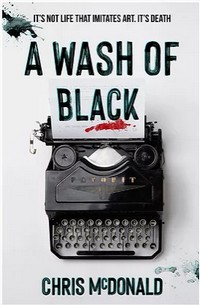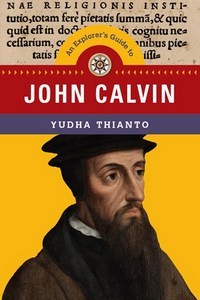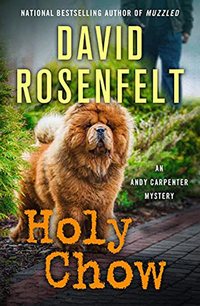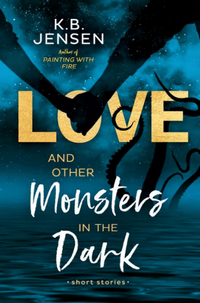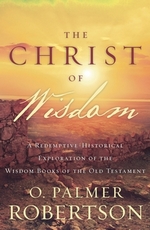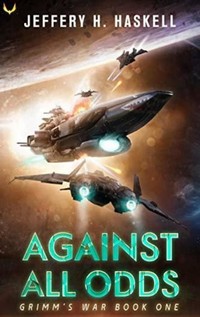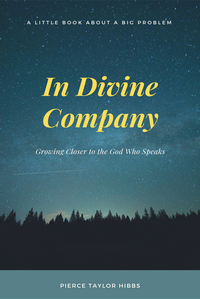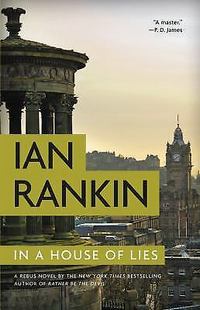I was interrupted more than usual while writing this post by one of my dogs seeking attention. “Could I give you scritches later, girl? I’m trying to talk about fictional dogs,” is a strange mind space to be in.
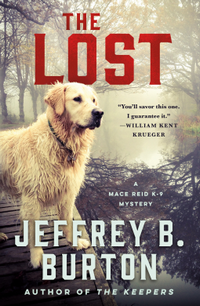 The Lost
The Lost
DETAILS: Series: Mace Reid K-9 Mystery, Volume 3 Publisher: Minotaur Books Publication Date: June 27, 2022 Format: eARC Length: 288 pg. Read Date: June 16-17, 2022

What’s The Lost About?
Mace and his dogs are moving in different circles after the events of The Keepers, and get called to help the FBI look for a missing mother and daughter—they were kidnapped after a home invasion went wrong. Their husband/father, financier Kenneth J. Druckman, was beaten and left behind. It’s up to Mace and Vira to give them a lead.
Sadly, it doesn’t take long for Vira to find the mother’s body on Druckman’s land, or for her to act like Druckman did the killing. It’s not like Mace can just point at the billionaire and shout, “J’accuse!” He’s going to need to find more than the word of his young dog—he also needs to help the FBI (if he can) to find the five-year-old girl before it’s too late.
Kippy Gimm (now a detective) and the rest of Mace’s dogs are, of course, in on this, too.
Non-Mace Perspectives
Typically, I’m not a fan of a first-person narrated book frequently switching to the third person—usually the killer. It doesn’t turn me off of a book, but I really don’t enjoy it. Burton, however, has done a better job of it in this series than most authors. I don’t know that I can say that I’ve enjoyed every instance of it—but, unlike most, in the previous two books in this series, those sections have added to the novel.
That really doesn’t sound like a compliment, but it was one.
In The Lost, most of those scenes/chapters are essential. The way this novel is set up—and the crimes perpetrated by the various criminals involved (and there are a handful)—necessitates that we see things from several perspectives that aren’t Mace’s. There’s just no way that he can find this information (he doesn’t require it, but the reader is going to demand to know what’s going on)—and it’d take months of investigation after these events for the FBI to figure some of this out (assuming they’d try).
The later in the book we get, the better these non-Mace portions get. Particularly those from the daughter’s point of view, they brought a lot to the table and got me really invested in these characters.
I still think I’d prefer more Mace and less of everyone else in future books in the series—but The Lost really shows that this approach can work. It also underlines how good at it Burton is.
So, what did I think about The Lost?
I’m not sure how the space is given to the non-Mace perspectives in this book compares to the previous novels, but it’s significantly more—that alone makes this novel feel different. The fact that many/most of those sections of the book take place prior to Mace’s involvement with the Druckman family also contributes to that feeling. I appreciate the fact that Burton’s doing things in Book 3 to make sure the series doesn’t get in a rut.
Sure, it’d be a fine rut to get stuck in and I’d have gladly read more books that were structurally similar to The Finders and The Keepers.* But I’m glad Burton made the step now and didn’t wait until he needed to shake things up.
* I read The Keepers a year ago and didn’t get the title until right this moment. I’m not too proud to admit that.
I’m not sure that we needed to learn about Kippy’s job woes at this point—it didn’t have an impact on this book, as FBI-centric as it was. It might have been better to talk about her difficulties with her new assignment when it’d have a bearing on the plot, and wouldn’t risk feeling like a repeat when it does come up. It’s not a good position for her to be in—I don’t want to minimize that—I’m just not sure the reader needed to get that information now, I don’t know what we’re supposed to do with it. As complaints go (and I think it’s the only one I had with this book), that’s a pretty minor one.
The pacing on this is strong—we hit the ground running with Mace and Vira at the beginning and we really don’t stop. There isn’t a lot of time here for contemplation and rumination—it’s not a breakneck speed, but it’s a steady jog. Again, it shows that Burton’s doing something different in this book.
I feel like I’m spending too much time talking about how different The Lost is from the other books—and I don’t mean to harp on it, I’m just commenting on the various ways it is. I don’t know that readers who aren’t writing about the book are going to spend that much time thinking about it—I think they’ll note the freshness of it, they’ll feel the overall effect, though. I’m not saying it’s better or worse than the other two, just appreciatively different. And that’s a nice thing.
As always, any time spent with Sue, Maggie May, Delta Dawn, Vira, and Billie Joe is a boon. They’re a fun pack of animals to read about—and I’m already looking forward to their next adventure. Mace and Kippy are good, too—but we all know who the stars are here.
This would be an okay jumping-on point to the series, I’m not sure you’d get the full idea of Vira’s special talents—but that’s okay, it’s not required to appreciate the books. The important thing is that mystery readers—particularly the dog-loving kind—jump on to the series at some point.
Disclaimer: I received this eARC from St. Martin’s Press via NetGalley in exchange for this post—thanks to both for this.

This post contains an affiliate link. If you purchase from it, I will get a small commission at no additional cost to you. As always, opinions expressed are my own.
![]()



